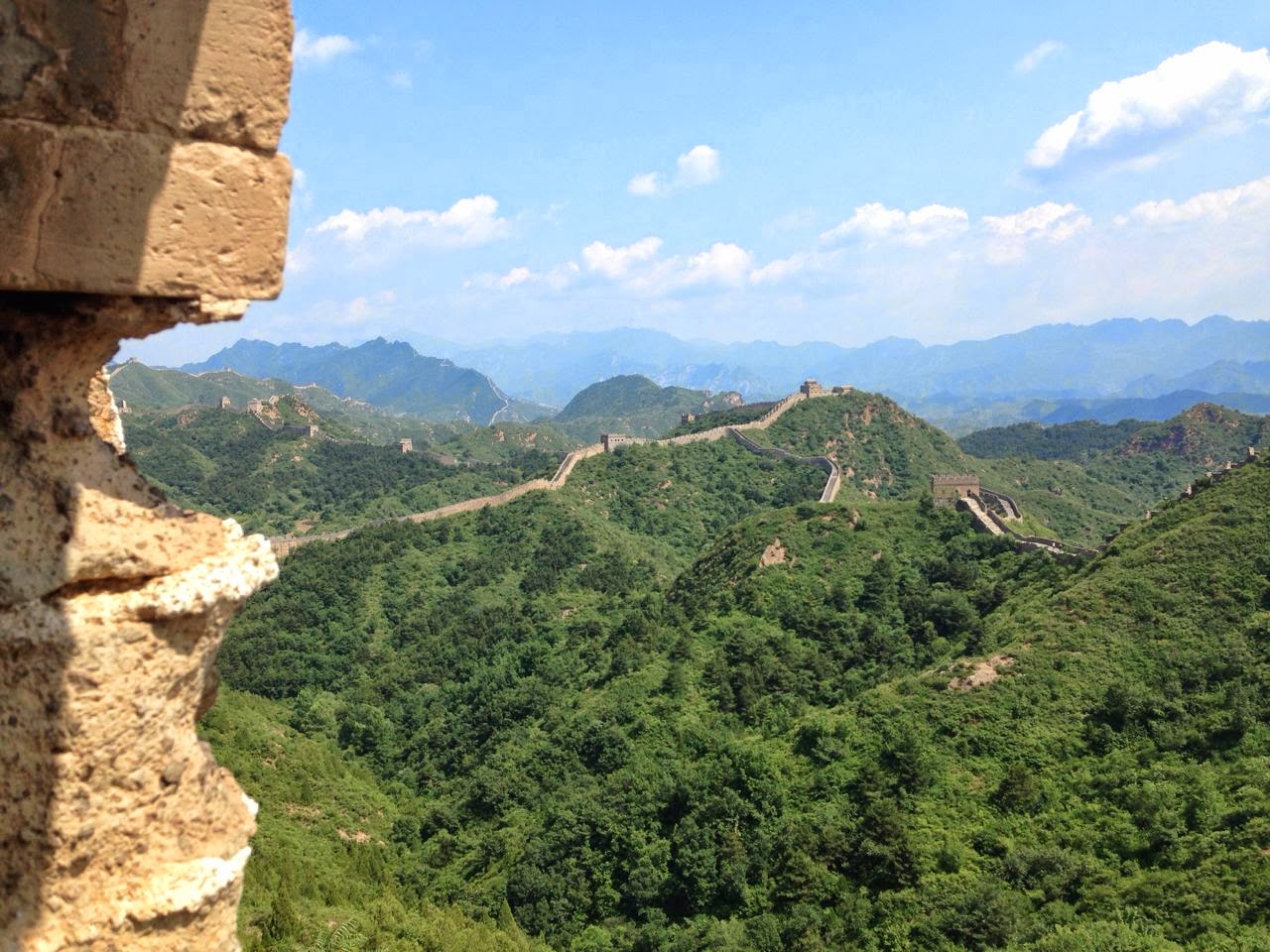 |
| Hanging out at the Peking duck place across the street. |
Being western, we tend to lean heavily toward the western. One is called Frost, and the chef/owner is always experimenting with new dishes, some of which work and others that fail. But his tofu skin lasagna is great, especially for those avoiding gluten. It's possible it's because he loads the tofu skin up with cheese and good sauce, but who cares? Across the alley from Frost is the second of what Bob calls the "holy trinity" of restaurants we favor, called Big Smoke. There, we'll get the chimicurri chicken and the beet salad and the very good guacamole.
And finally, the third place in what others called the Bermuda Triangle is Great Leap Brewery, which offers a respectable caesar salad and very good burgers, plus good beer.
But in addition to having a good basis of western comfort food nearby, the neighborhood is really and truly a neighborhood. Now that we've lived here almost three years, we realize it's virtually impossible to go out into the neighborhood and not run into friends, neighbors, and the kids we know, from our own offspring to the little ones of our younger friends. Our apartment complex has one of the few decent playgrounds in the area for kids, so it becomes a hangout, and I feel only slightly creepy when I walk out of the complex by way of the playground on the chance that I might see one of my little ones.
Daniel laughs at us because the alley we like to frequent is actually not that pretty, just a short side street lined with tippy tables, hard chairs, and a pet shop where overbred cats and dogs wait out their days in sad mesh cages. Cars manage to squeeze down this alley because there's a well-known hotpot restaurant also tucked away in it, meaning that if a driver in a big Mercedes is trying to take his boss to the restaurant, he'll lay on the horn to make sure that pedestrians, little kids, and tiny dogs get out of the way. And I wonder why I have ringing in my ears.
In any event, it's not that much to look at, but when the weather is good, it's the place to be. Back in DC, we certainly run into friends at the Safeway, Starbucks, and CVS, but it's more spread out. Bob compares it to the years he lived in Oneonta, where he did know just about everyone in the place. Funny that a city of 22 million can be that intimate.
 |
| Bob at Big Smoke. |
 |
| This is the Seasons Park playground intended for adult "exercises." The woman is standing on a disc that goes in circles. What this does baffles me, but it makes a fun seat for little ones. |




















